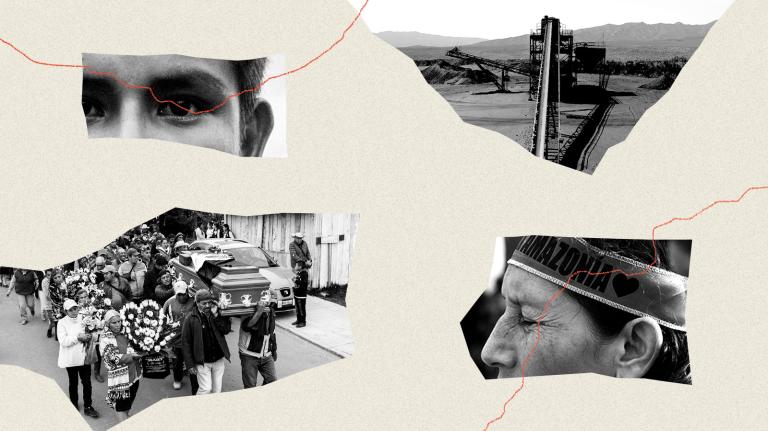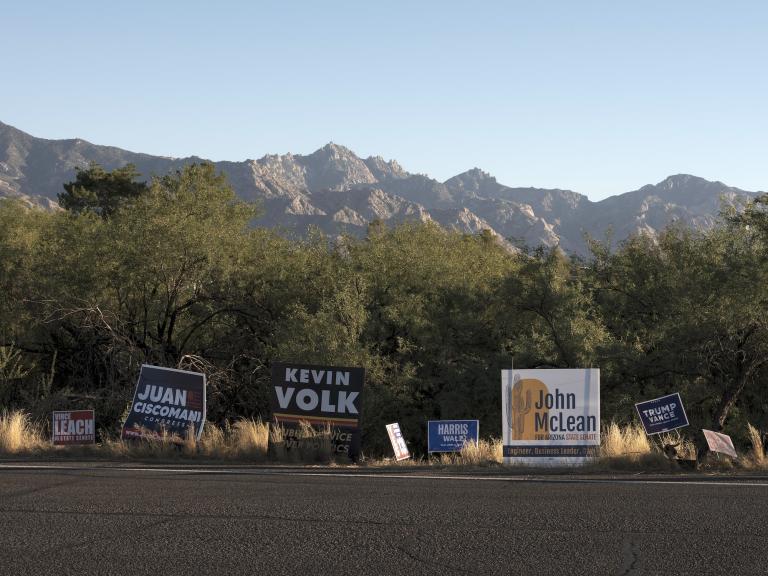 Now that the Arctic Refuge is one step closer to being despoiled, I am starting to wonder what we are doing wrong (like I am the first). It does not matter if oil comes out of the ground or from palm trees, if the means of production has potential to destroy biodiversity, it should be resisted.
Now that the Arctic Refuge is one step closer to being despoiled, I am starting to wonder what we are doing wrong (like I am the first). It does not matter if oil comes out of the ground or from palm trees, if the means of production has potential to destroy biodiversity, it should be resisted.
Our population here in the U.S. is growing at a rate that would fill a city the size of Boston every two months, and the world’s population is slated to increase 50%. Add to that the growing world economy and anyone with a brain can see that the pressure to develop land is not going to slow down in the foreseeable future. I am not feeling confident that the environmental movement (as it is presently called and organized) is going to be all that effective.
Case in point (and I apologize for being so dogmatic about this topic): I called into an NPR talk show on the subject of hybrid cars verses biodiesel cars a few days ago (they were needing a caller to balance all the positive comments about biodiesel). I mentioned the plans for the giant Indonesian palm oil plantations and the idea that using biodiesel made from soybeans will increase one’s ecological footprint from an average of 24 acres to 34 acres. The response (completely unbiased of course) from the biodiesel distributor skipped over the jungle thing and instead gave us the standard “biodiesel smells like popcorn and can someday be made from cow poop and algae grown with sewage” spiel. The fact that (for some strange reason) it is not being made from any of those things doesn’t seem to matter. It seems to be enough for most environmentalists to just hear that it is possible to make it out of those things — they succumb to the warm fuzzy appeal.
Everything eventually comes down to competing groups of humans looking out for their own self-interest (including myself and biodiesel distributors). If some group decides they want to buy Yellowstone and turn it into another Disneyland, the only thing that will stop them is an opposing group of people with the power and imagination to do so. If someone decides they want the trees on another person’s forest property, the only thing that will stop them is successful opposition from another group. That is why I am always pushing to get land into the hands of organizations that want to preserve it and have no means of profiting from it (nonprofits). NGO’s are just another layer of security making it harder for corporations, individuals, or governments to get at resources on protected land.
As I have said numerous times before, private property rights tend to be supported by most people. Unfortunately, that can be a double-edged sword. Until this week’s court decision, these rights have been very effective at preventing the government from protecting the environment. Government is oftentimes wielded as a weapon by competing groups of people. In this case, the government is saying, “You may own the property but you cannot do what you want with it.” In all honesty, it isn’t that different from having the government say, “You may own the property but we are allowing a corporation to remove the trees from it, or take the oil from under it.”
 Now that the
Now that the 
